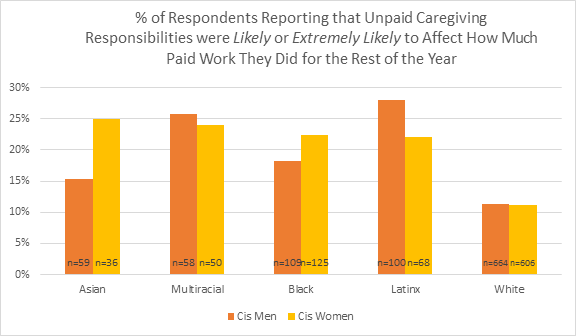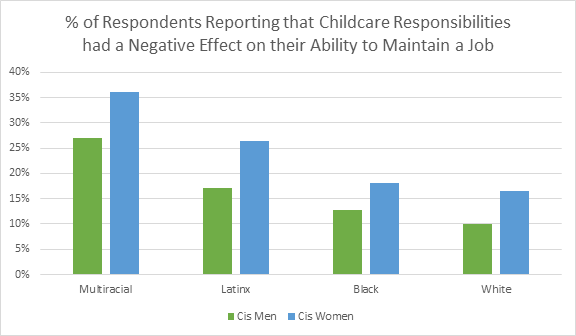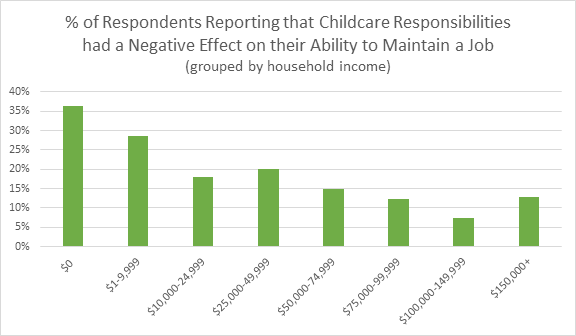
Unpaid Care Work and Its Impact on New Yorkers' Paid Employment
The widening gulf between the vast need for care in our society and the limited accessibility of care has led us into a “crisis of care.” While the need for care is universal, care work has long been relegated to the status of a private concern. To explore current patterns of unpaid caregiving and its impact on New Yorkers’ paid employment, the Worker Institute has published a policy brief sharing relevant findings from the 2022 Empire State Poll, carried out by the Cornell University School of Industrial and Labor Relations (ILR).
In the aggregate, analysis of the 2022 Empire State Poll suggests that respondents across all socio-economic groups, races/ethnicities and gender identities are tasked with caring for an immediate family member (or close friend) and that this has affected their ability to do paid work. To be sure, and as this policy brief details, women—women of color and low-income women especially—still bear the brunt of unpaid caregiving in the household and the adverse impacts it can have on paid work. But as this analysis also demonstrates, caregiving responsibilities increasingly affect a wide swath of the population. While we have known for a long time that the weight of unpaid care within the home has long been born by women—which has affected their employment and earnings outcomes—analysis of the 2022 Empire State Poll suggests that respondents who identified as men from different race/ethnicity groups are also bearing some personal costs of care.
Some key findings:
- A substantial proportion of New Yorkers across all gender identities, racial/ethnic groups, and ages are providing unpaid care for family (or close friends).
- People of color from most racial groups were about twice as likely as white respondents to report that their unpaid caregiving responsibilities were likely or extremely likely to affect how much paid work they did for the rest of the year.

- People of color, cis women, trans and gender-nonconforming people, and people with lower incomes were most likely to report that childcare responsibilities had a negative effect on their ability to maintain a job.


- Many New Yorkers had to take time off from paid work to provide unpaid childcare during the pandemic, with Black, Latina/o/x, and lower-income respondents being most likely to have done so.
- Our analysis found higher rates of unpaid caregiving and its impact on paid work among members of unions and worker associations.
To read the full analysis and policy recommendations, download the policy brief here.


